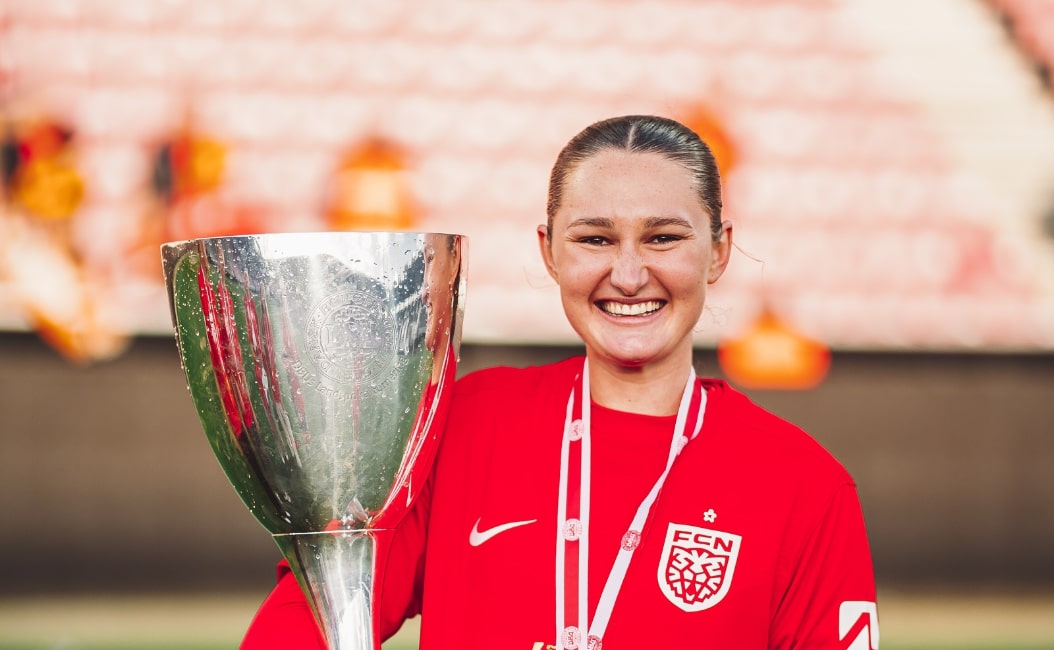
When a young Port Douglas State School primary girl, named Wini Heatley, joined the Douglas Dragons Football Club aged 5, it was the start of a wonderful life and one that transpired into a successful career in women’s professional football.
Currently Co-Captain and playing for League and Cup 2024 Winners, FC Nordsjaelland, in Denmark.
We had the pleasure of catching up with this talented player.
Is there a player or coach you admire and who has helped you shape your view of the game?
There has been so many players and coaches that have influenced my game, but the person who probably altered my view the most was actually a coach who didn’t select me – Martin Fehlberg. He was the Peninsula under 15’s coach in my first-year trialling for the representative team, and I only made shadow.
I remember being so upset, and I was determined to prove him wrong. I went to every single training wanting to show him that I deserved a spot on the team. He ended up taking the original squad, but not being selected by him was my first big setback, and it was the moment that really cemented in my mind that football was what I wanted to do.
Was it always your plan to play overseas?
Because of the lack of visibility in FNQ and Australia when I started, I grew up without any idea of what a woman’s football career looked like. I think as I started my professional career at Brisbane Roar, and started to get involved with the national team, I realised that a move abroad was in the natural order of things. The A-league in Australia has come a long way, but it’s still not a full year-round league. When I was there players were only paid pro-rata for what was a 6-month season so I was forced to find work and training for the other 6 months of the year.
For me this meant moving interstate so that I could train with the Future Matildas program in the off- season. Moving every 6 months is definitely not sustainable, so in that way it’s hard for our league to compete with the setups in Europe, where you’re contracted year-round. On top of the consistency, you get to play more games in Europe, and there’s more eyes on those games. So, I think it was just an inevitable move to take my game to the next level.
Any issue with language barriers?
When I played in Sweden I definitely did. The coaches weren’t comfortable communicating in English, so I had a player translating for me in team meetings. The result was usually
a 20 second explanation for a 10-minute meeting, which made it pretty difficult.
In Denmark my experience has been quite different. Our head coach is from England, and assistant coach from Canada – so neither of them speak Danish. So, in the team and the club we communicate solely in English. Outside of the club I actually took Danish classes for my first 8 months here, so I like to think I can get by in the local language too and it’s been fun.

